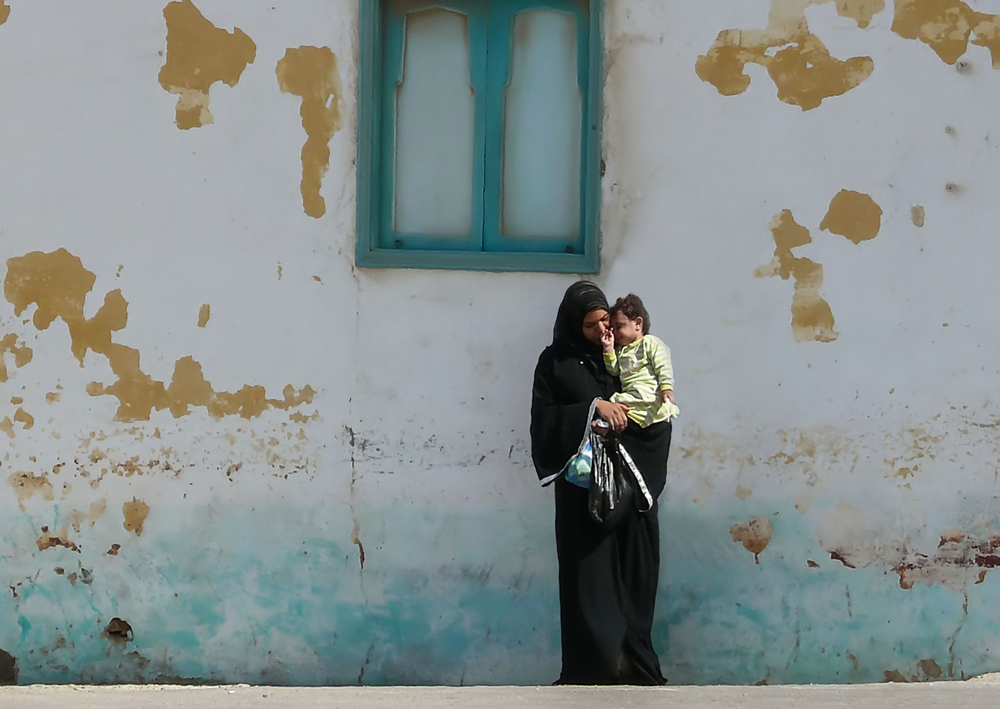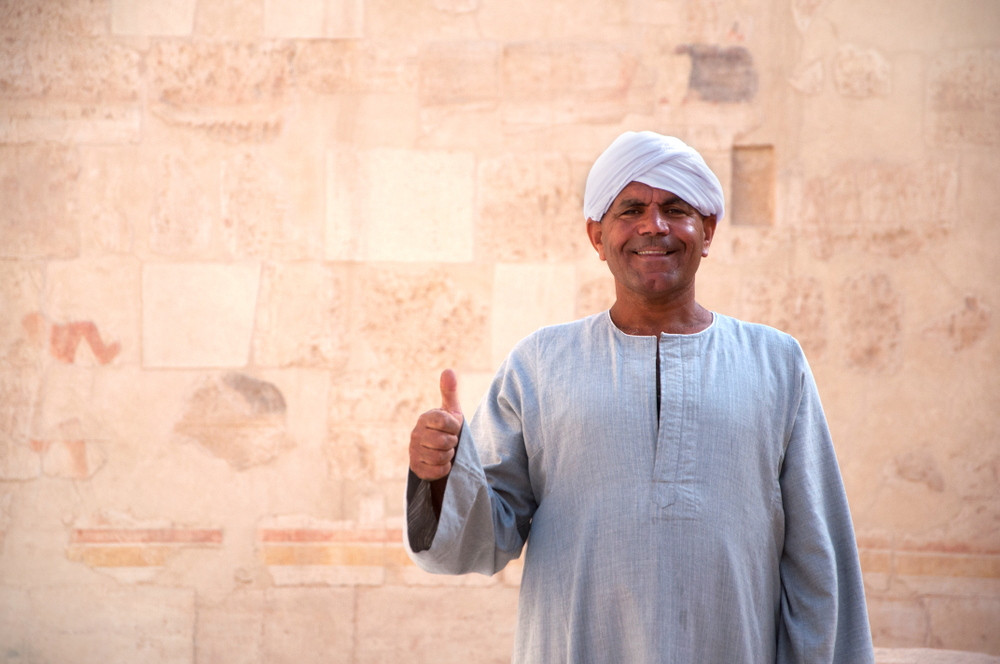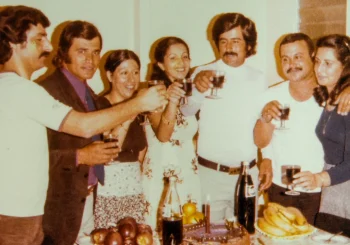“Ana Ibn Balad, ana bafham fel ossoul” (I am a child of the country, I understand manners). Egyptian singer Mohamed Fouad’s unique romantic selling point in his otherwise standard Egyptian love song ‘Ibn Balad’ – which accrued almost 6 million views on YouTube since 2011 – is nothing more than this; he is a self-proclaimed ‘child of the country.’
In his defense, it is unquestionably one of the most self-approving statements one can make, packing a distinctive cultural reverence behind its simplicity.
Whether consciously or not, many Egyptians hope to be introduced as the venerable ‘Ibn Balad’ (child of the country). But, what does it mean to be a “child of the country?” What invaluable virtue is Mohamed Fouad attempting to sell to his desirable love-interest? And who is the renowned Egyptian poet, Ahmed Fouad Negm (1929-2013), referring to in his inspiring piece of the same title?
To Negm, Ibn ElBalad is the country’s “morning,” its “victory,” its “wheat,” and its “spear.” So, what does it take to earn such lionization? Is it simply inherited with the passport?
Ahmed Amin (1886-1954), Egyptian folklore historian from Cairo, notably concluded his life with the publishing of an opinionated guidebook on being Egyptian. In his ‘Dictionary of Egyptian Customs, Traditions, and Expressions’ (1954) Amin presents an amalgamation of manners he thought a “good” Egyptian citizen should possess. His manual came soon after Egypt’s 1952 revolution which overthrew the monarchy, with the manual serving to redefine Egyptian societal norms after millennia of external influence.
Following the Arabic alphabetical order, the book goes through all colloquially popular titles as well as their definitions and contextual backgrounds. One of these, of course, is the aforementioned title of Ibn ElBalad. Although Amin may have proposed a well-studied definition of Ibn ElBalad as an individual adhering to historically determined dress codes, manners of speech, and social behavior, it is equally important to hear how Egyptian nationals perceive the term and which characteristics they associate with it.
“They must be amin (trustworthy and dependable),” says Amira Mahmoud, a 42-year-old independent hairdresser. “Whenever you’re in a jam, they must be the first person you feel you can turn to.”
Nancy Zakareya, a 43-year-old small business owner, believes that Ibn ElBalad “must not prioritize their own well-being over that of others and should offer a helpful hand with genuine pleasure and without demanding reciprocity.” The revolutionary Egyptian Arabic poet Negm similarly speaks of the “hand that will appear in the midst of the fog and pull with it the morning light” in his poem Ibn ElBalad (1968).
With a humorous tone, Zakareya adds that, “Welad Elbalad (children of the country) are unfortunately in very low supply.” By her definition, it is difficult to disagree. Indeed, such genuine consideration and graciousness are particularly challenging to achieve in one’s self, let alone find in others, amidst the esoteric hardships of our Egyptian streets.
On the other hand, Abdallah ElSheikha, a 26-year-old Germany-based doctor, curiously suggests that, “el sheyaka (being chic) is sometimes a big part of it, especially for Bent ElBalad (the daughter of the country).”
The juxtaposing expectations our society holds of Bent ElBalad’s wardrobe may at first seem subtle; yet, the oxymoron is accentuated after no more than a moment’s thought. For Bent ElBalad, ‘Dress to impress’ means striking the fragile balance between magnetically stylish and respectably conservative.

However, moving past the perplexing self-contradiction, the importance of Ibn ElBalad’s presentation has likewise been preached by the celebrated Egyptian writer and historian, Ahmad Amin. In his ‘Dictionary of Egyptian Customs, Traditions, and Expressions‘ (1954) the author dedicates nearly three paragraphs of his corresponding section to the “many standards Ibn ElBalad’s attire must adhere to.”
He painted a complete picture from the shape and color of the fez to the stylish robe and adorning rings. While Amin’s recommended dress code may have become outdated, a traditional and decorous presentation seems arguably pertinent to the title of ‘Ibn ElBalad.’
Nevertheless, Abdallah emphasizes that being chic is not nearly as important as “elgad’ana (dependability) and el tawado’ (humility).”
He explains that Ibn ElBalad should be “equally able to communicate with both a taxi driver and a chairman of a university in a smooth and respectful manner.” The individual should “not be tongue-tied in any social situation” and should be “in touch with common Egyptian life,” a trait believed to be gradually dissipating in the ever-growing mélange of linguistic, socioeconomic and cultural gaps.
Abdallah accordingly states that, “if you choose to remain in a bubble, you are not really Ibn Balad.” Once again, Ahmad Amin substantiates Abdallah’s viewpoint, further defining Ibn ElBalad as “knowing when to use colloquial jargon, such as ‘bela mo’akhza’ (without blame)” and striving to “satisfy the interlocutor” with stimulating “metaphors and jokes” scattered across their speech. Amin believes that Ibn ElBalad prefers “ending a dialogue on a high and humorous note.” It should be no secret that Egyptians deeply rely on the delicacy of communal laughter. Where possible, absurd tragedy is collectively escaped with dampening lightheartedness.
Negm, unlike Amin, is abstract in his diction. His Ibn Balad is not handed a list of concrete guidelines on how to perform a role. Rather, he preaches humanity in a universally relatable manner. He implores that someone “compensates for what has been taken and rises above all wounds.” Still, Negm himself admits to not having spotted Ibn ElBalad, posing, “where is he? And who is he?” towards the end of his riveting piece.
It seems being Ibn Balad can carry many meanings. Yet, the detectable commonalities present across all varying definitions discussed above seem to be these; Ibn ElBalad is, amongst other things, benevolent, reliable, witty, and socioculturally immersed.

That being said, how these traits look in practice is by no means fixed. Egypt’s streets have witnessed thousands of years of volatile civilizations with different meanings of patriotism, nationalism, and upstanding citizenship proving transient. Thus, the question of what makes an individual Ibn Balad is ineluctably linked to a much bigger one; what makes an individual Egyptian? But, that deserves an article of its own.







Comments (4)
[…] in Egyptian society where women are concerned, despite the progress. One of these is the concept of bent nas, which loosely translates to daughter of the people as defined by Zilzal studio — an online […]
[…] “Ana Ibn Balad, ana bafham fel ossoul” (I am a child of the country, I understand manners). Egyptian singer Mohamed Fouad’s unique romantic selling point in his otherwise standard Egyptian love song ‘Ibn Balad’ – which accrued almost 6 million views on YouTube since 2011 – is nothing more than this…Read More […]